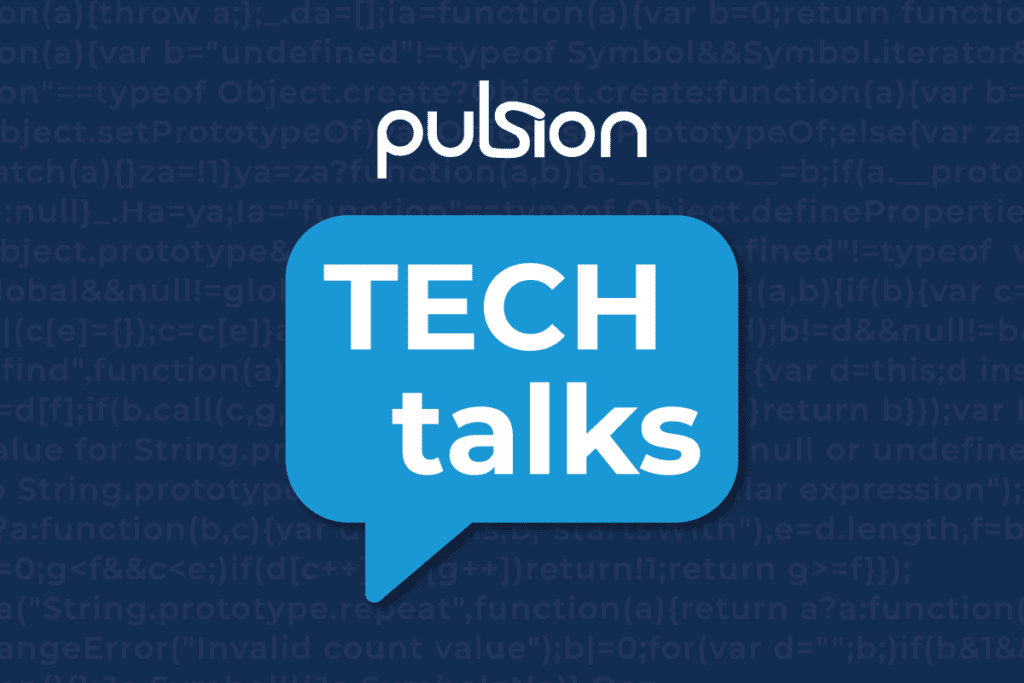Understanding the hybrid apps vs. native apps debate will help you decide which platform works better for your web app, cross-platform, or mobile app development project.
Developing native apps to hit the target audience has some benefits, including superior performance. Still, developing hybrid mobile web apps may suit your mobile development needs better if you provide services on multiple devices.
A Statista article explains that only a third of developers use cross-platform technology while others use native frameworks. The native vs. hybrid debate will end once you read our complete guide and comparison.
Let’s help you decide because the choice depends on your software needs in the long run.
A Comprehensive Comparison of Native vs Hybrid Apps
A native app is dedicated to a single platform or mobile operating system, whereas a hybrid app is compatible with multiple operating systems, including Android, iOS, and Microsoft.
You download a native app from the iOS store or Android store, depending on your mobile device. However, you access hybrid apps through a web browser or download them from multiple app stores.
What Are Native Apps?
Native apps or mobile apps designed with a native framework are developed specifically for an intended platform or operating system, especially iOS and Android. For example, the native iOS app won’t run on an Android device screen and vice versa because it only runs on a specific platform.
Native apps tend to work seamlessly with specific platforms and features because they’re designed for those devices and operating systems. A native mobile app uses programming languages highly compatible with the intended operating system and mobile platform and provides efficient security.
Spotify uses native mobile apps to seamlessly adapt to your mobile device, whereas is another native integration with smooth and effortless performance on any device. Meanwhile, SoundCloud uses native capabilities for a fully immersive music experience on iOS and Android.
What Are Hybrid Apps?
Hybrid apps or mobile applications designed with a hybrid framework marry a native app with a web app framework for cross-platform designs on multiple devices. Hybrid apps are desktops and web applications wrapped in native device features or a native shell using web technologies.
Hybrid mobile apps or hybrid web apps combine web elements and tools to run a single app on multiple platforms, devices, and operating systems. A hybrid app is also known as a web app because it requires web browsers to function but uses multiple programming languages for multi-platform designs.
The Amazon app store is hybrid to adapt to web and mobile apps for a cross-platform experience, and Instagram uses hybrid app development frameworks for similar experiences on all devices. Meanwhile, X (formerly Twitter), uses web-based components for easy content browsing and push notifications.
Pros and Cons of Native Apps vs. Hybrid Apps
Native apps and hybrid apps have compared pros and cons to consider before choosing hybrid and native apps for your software future as a client. Let’s discover some instances where native apps will work well and where they won’t before doing the same with hybrid apps.
The Advantages of Native Apps
- Native apps perform better in their native environment because the software is designed for the specific platform or device intended
- A native app has better offline functionality because it doesn’t depend on internet connectivity to run the application
- Native apps could provide an improved user experience because of the user flow, screen, and user interface designed natively upon the operating system’s default functions and tools
- Native apps use native code, which typically performs better than HTML and JavaScript, giving you more stable high-definition (HD) games and graphic-heavy applications
- Native apps tend to let users enjoy new features straight off the bat because native SDKs don’t have to rely on native plugins to function smoothly, unlike web apps
- The native app development approach uses popular frameworks like Flutter, Xamarin, Ionic, React Native, Swiftic, and Apache Cordova to design your platform-specific applications
Disadvantages of Native Apps
- The different codebase of each native framework makes it difficult to release exact features at the same time on different types of devices and operating systems, with a slower time for launch
- Native apps require different skill sets for each operating system’s development team, such as developers knowing Swift or Objective C for iOS or Kotlin, Java, and C++ for an Android app
- The development time and cost can rise because each platform has its own release cycles and updates if you’re developing apps for both stores
- Native apps are larger than hybrid apps, discouraging users to continue downloading when it takes longer than expected, which may impact mobile app downloads
- Native mobile apps from the Apple App Store or Google Play Store don’t integrate well with web apps or use web-based technologies
The Advantages of Hybrid Apps
- Developers have the full advantage of only writing code once to use everywhere because they use a single codebase to develop their hybrid or web apps
- Hybrid app development lets businesses develop mobile apps for various platforms faster with different versions to save money and time during initial sign-ups
- A hybrid app type can provide online and offline access with local or server-based technology to users to ensure your customers remain happy while traveling on the subway
- Hybrid applications offer progressive web apps, allowing you to provide a similar user experience on different operating systems and devices
- Hybrid app development welcomes more talent because engineers can use HTML, CSS, and JavaScript programming languages to write code for numerous platforms
- Hybrid app development uses Ionic, Kendo, React Native, Xamarin, Onsen UI, Quasar, NativeScript, and Aurelia frameworks to allow a larger talent pool
Disadvantages of Hybrid Apps
- Hybrid apps can appear differently to various users, depending on the device used, operating systems, and software versions
- Hybrid applications meet on a middle ground and depend on native plugins to access device features like media, Touch ID, and GPS locations
- Updated cross-platform version releases and changes are necessary for hybrid apps to keep using different libraries and frameworks
- 3D and high-definition games or applications with high-caliber graphics may not operate or perform consistently across various platforms and devices with a hybrid app
- A hybrid app may cost more and take longer to develop because different platforms have varying hardware choices, meaning you may need to develop different features and user flows
A Comparison of Native and Hybrid App Differences
Hybrid apps and native apps in mobile app development have some key differences. The main difference is that users tend to prefer Android apps or iOS apps for native experiences. Still, let’s distinguish the accessibility, and development differences to help you choose.
Native vs. Hybrid Accessibility
First, let’s compare accessibility between native and web apps. Native vs. web-based apps differ in offline access, which may be a deal breaker for you. Offline functionality without the internet gives native apps an advantage over hybrid apps that rely on an internet connection or internet browser.
Not all hybrid apps have limited access during or won’t function offline, but native apps specific to multiple operating systems don’t need an internet connection. You have to download them from different app stores first, but native apps can run without internet access in most cases.
However, accessible mobile apps also refer to applications reaching more users. Hybrid apps can reach a wider target audience for more downloads on multiple platforms and mobile devices, without requiring specific operating systems. Also, hybrid apps are more accessible on a browser and in search results.
Native vs. Hybrid Features
Develop native apps if you want rich design elements, rich media features, and seamless integration with device-specific software and defaults. The device’s features in native apps will outshine hybrid solutions for a user-friendly experience with the latest features in every version, tool, and update.
Hybrid apps don’t access native features as easily because of the native shell. However, a native application can access your camera, location, data, microphone, and contacts more easily. These apps have more capabilities on specific devices and provide complex yet user-friendly experiences.
The Java development kit or SDK helps an app developer design an optimal user interface for the intended app store, and mobile users interact with an app idea that more closely connects with device software. Creating apps for a specific mobile phone improves features in native app development.
Native vs. Hybrid Performance
Native apps provide optimal performance, speed, and easier updates for users on any phone because the focus lies on advanced tools and platform-specific convenience. The best choice for superior performance and an enhanced user experience would be native app development.
On the other hand, the hybrid approach uses platform-specific native shells to mimic a smooth performance from responsive websites and apps. Unfortunately, the shell prevents hybrid apps from using the device’s high-performance functionality, hardware, and installed software.
Native backend code may require more work on different platforms. However, the execution is unrivaled on one platform vs. web-based applications that typically need a web browser to perform and operate normally. A web application can’t be integrated perfectly with mobile software or hardware.
Native Development Time and Price vs. the Hybrid Approach
Native apps have higher development costs that don’t fit a tight budget or cheaper software intentions and become time-consuming when multiple developers must write code for different devices. Hybrid application development is much faster, simpler, and cheaper than developing native applications.
Native features are also more varied and allow a better experience but cost more and take more time to develop. Developing a native app or service requires more resources because the features offer more complexity and variety. However, native apps offer and expose you to more talented developers.
Ultimately, the important thing is that hybrid has a lower cost and may be better to make money from downloads and paying customers. On the other hand, native applications have drawbacks and challenges due to the nature of complex code for multiple stores to reach a wider market.
Native vs. Hybrid Development Process
The development teams may also approach the development process differently, based on the factors above and whether you want different versions, seamless hardware support, or smartphone-dependent accessibility on Android and iOS. Development teams may encourage a minimum viable product (MVP).
An MVP lets developers test whether the project is worth scaling, which leads to iterative development processes for a new version. Hybrid projects are cheaper and faster to develop, making them ideal for a DevOps or Agile development process.
Hybrid vs. Native Apps Key Differences Summary
The table shows a combination of the accessed differences in development features, maintenance, maintenance costs, downloaded installation needs, user experience, development costs, coding languages, testing, the quality of images, platforms, security, app stores, integration capabilities, code bases, installation, screen aspect ratios, and updates.

Which App Is Better Native or Hybrid?
Do native and hybrid apps offer a superior choice in mobile app development? A better user experience comes from native development by focusing on one operating system at a time. Still, a developer could provide a superior choice with more affordable hybrid multi-platform apps when you launch an MVP.
An Android and iOS native hybrid example would be an app for a large enterprise versus one platform code for a small startup to create services on multiple devices. The native hybrid answer depends on whether you’re creating cross-platform or performance-enhanced apps for your business.
Additionally, here are tips for choosing the right instance for your hybrid or native applications, with a focus on what each offers, to help you make the right decision before you upload an app to stores.
When to Use Native Applications
- Achieve the best device potential and better overall performance with native development
- Increase user retention from app stores with native experiences for iPhone or Android
- Design interactive apps with greater responsive functionality and speed
- Develop applications with a user-friendly interface that integrates with device software or cameras
When to Use Hybrid Applications
- Develop web apps for a more cost-effective option for companies with a limited budget
- Monetize app downloads with hybrid MVP development and web apps for a startup company
- Develop PWAs to reach more users with the hybrid nature of development
- Choose hybrid mobile application development for code reusability across platforms
Why Choose Pulsion for Hybrid and Native Apps Development?
The hybrid and web apps vs. native debate can also end with the right development team or company. Learn about us as a trusted partner in the UK, and let our app developers guide your decisions to develop the best app for your needs. We aim to offer reliable website or app development.

We specialise in hybrid, Android and iOS app development. Here is a list of services you might want to consider:
- Android app development
- AngularJS development services
- Cloud migration services
- Custom software development
- Hybrid app development
- Machine learning app development
- Mobile app development
- MVP development
- Python development services
- React Native app development
Hire dedicated developers from Pulsion to create the best user experience, or hire Android app developers to master the Google Play Store. Let our clients build your confidence in our developer team.
Let’s set a course to create magic for your business app!

Contact us today to speak to someone on our app developer team to discuss your mobile development needs for a web app, hybrid app, or native app. Your business priorities are important to our team.
Summing Up the Hybrid and Native App Debate
Decision-making comes down to knowing the differences between native and hybrid apps, regarding functionality, performance, access, UI, test protocols, costs, and advantages of each. Whether you want CSS or Swift behind your backend stack determines your choice.
Also, do you want your developed app available to your market on a desktop web browser? In that case, we can deliver a hybrid solution. Let our team deliver the right app for your software. Contact us to develop, maintain, support, and sync consistent effort on your mobile development assignment.
Hybrid vs. Native Apps FAQs
What Is a Native App With Examples?
A native app is a business application designed specifically for Android and iOS devices. Expect the advantage of enhanced notifications, user experience, and performance for your business app. Businesses like Spotify, WhatsApp, and SoundCloud use a native instance and tools.
What Are Examples of a Hybrid App?
A hybrid app is a business application for a broader market, with tools and resources various users can install from many devices. The difference is that the hybrid ability expands with multi-platform, single-code development. Businesses using it include the Amazon app store, Gmail, and Instagram.
Which Is Better Native or Hybrid?
The native app and hybrid apps debate remains heated. Choose web technologies in cross-platform development vs. hybrid app development for affordable results. On the other hand, choose a native approach to avoid using mobile browsers and enhance performance in different app types.




